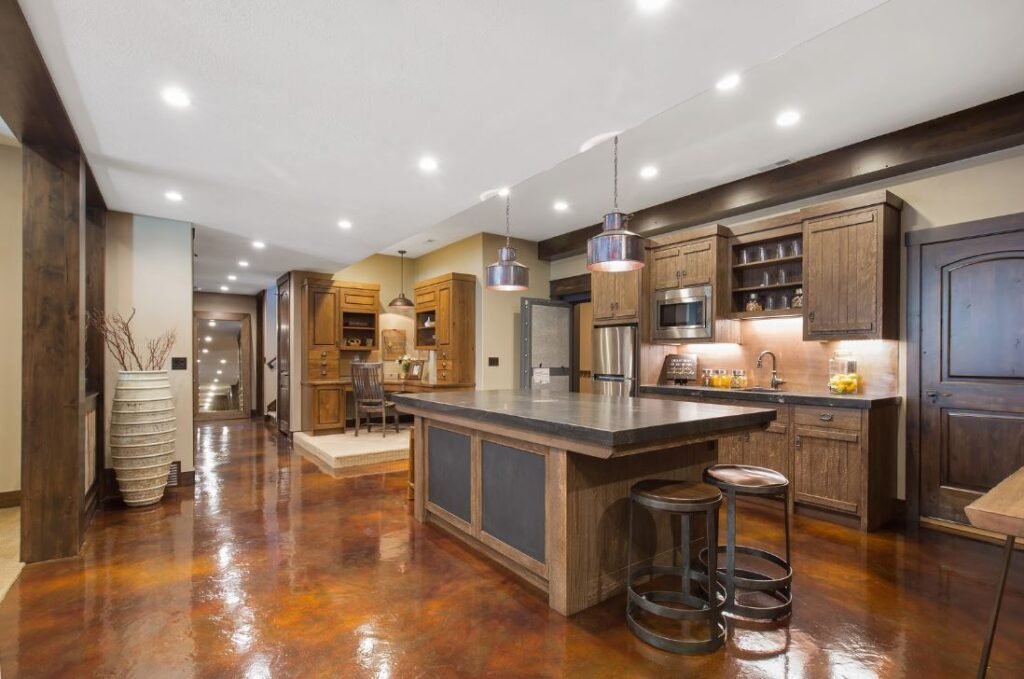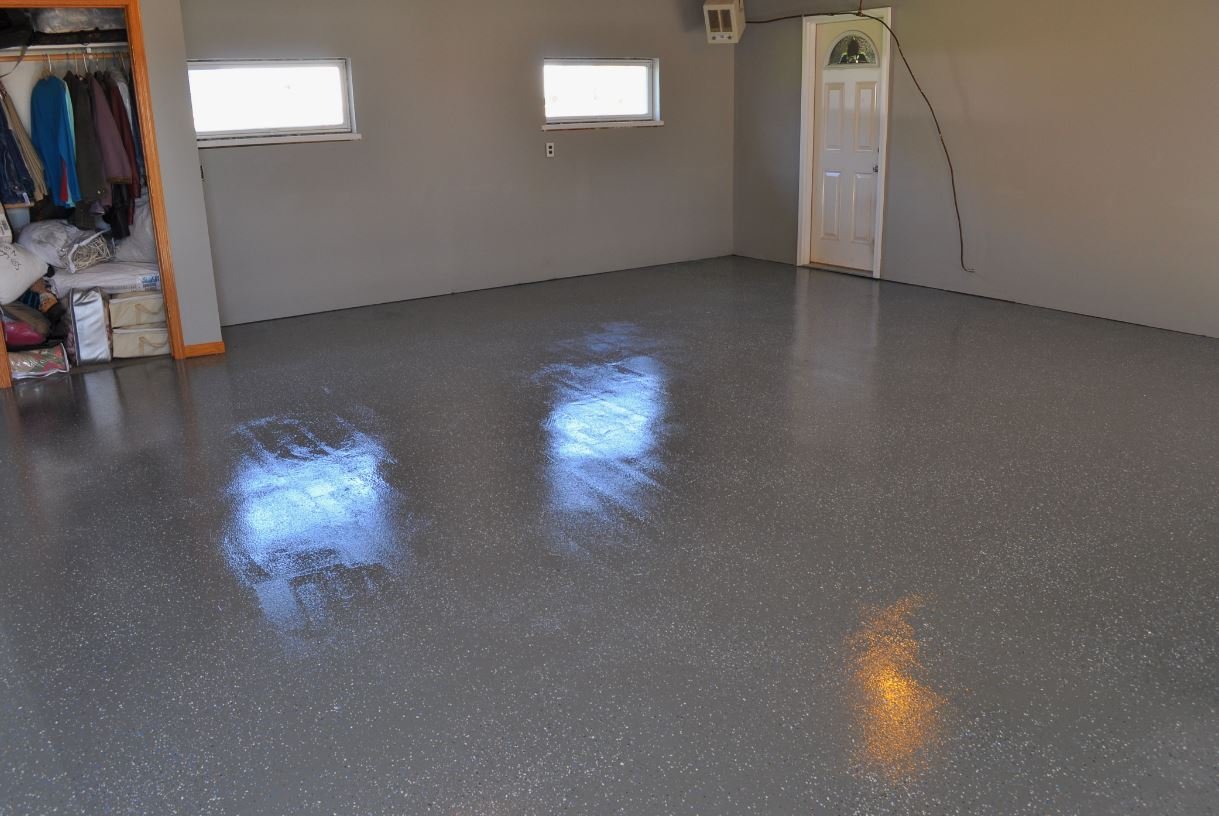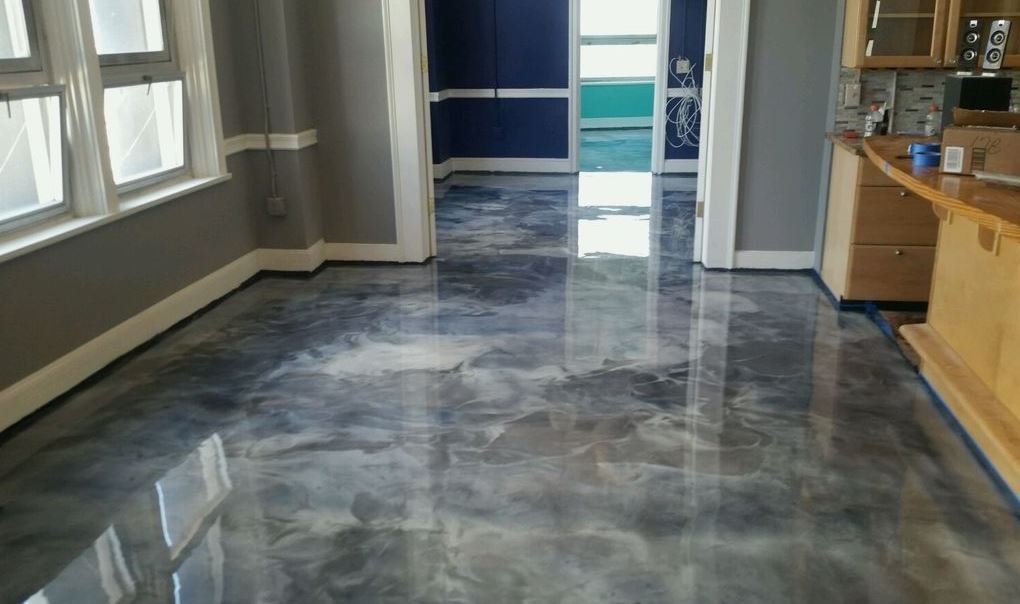Choosing the right flooring for your home or business in Vancouver is no easy task. With so many options on the market, it’s important to understand the key differences between popular choices like epoxy flooring and traditional tiles. Both options have their strengths and limitations, but the best choice depends on your specific needs, whether you’re focused on durability, aesthetics, or ease of maintenance.
In this article, we will break down the key differences between epoxy flooring and traditional tiles, so you can make an informed decision for your space. Whether you’re renovating your home, designing a new office, or upgrading a commercial space, understanding the pros and cons of each will help you choose the right solution.
What is Epoxy Flooring?
Epoxy flooring is a type of surface covering created by combining two main components: epoxy resin and a hardener. When these two chemicals mix, a chemical reaction occurs, resulting in a rigid, durable material that bonds to a variety of surfaces, including concrete. Epoxy flooring is known for its seamless finish, high durability, and resistance to chemicals, stains, and moisture, making it popular in both residential and commercial settings.
What Are Traditional Tiles?
Traditional tiles have been used for centuries as a go-to flooring solution in homes and commercial spaces. They are typically made from materials like ceramic, porcelain, or stone, and come in various shapes, sizes, and colors. Traditional tiles are known for their versatility and aesthetic appeal, especially in kitchens, bathrooms, and entryways.

When it comes to choosing flooring for your home or business, the decision often comes down to epoxy flooring versus traditional tiles. Both options have their unique advantages and characteristics, making them suitable for different applications and preferences. In this article, we will explore the fundamental differences between epoxy flooring and traditional tiles, helping you make an informed choice for your next flooring project.
1. Material Composition and Installation: Epoxy Flooring vs. Traditional Tiles
Epoxy flooring is created by mixing resin with a hardening agent, which, when applied, forms a durable, seamless surface. This mixture is poured onto the substrate, spreading evenly to create a smooth, continuous finish. The installation process involves surface preparation, application of primer, epoxy layer application, and a finishing topcoat. Epoxy flooring is often chosen for its ability to provide a seamless, uniform look and its capacity to cover large areas without visible joints.
Traditional tiles, on the other hand, are made from materials such as ceramic, porcelain, or natural stone. They are installed by adhering individual tiles to a prepared substrate using mortar or adhesive and filling the gaps with grout. This process results in a grid of tiles separated by grout lines. Tile installation can be labor-intensive and requires precise alignment to ensure a consistent appearance.
2. Durability and Maintenance: Epoxy Flooring vs. Traditional Tiles
Epoxy flooring is renowned for its durability and resistance to wear and tear. It is highly resistant to chemicals, stains, and impacts, making it ideal for industrial, commercial, and high-traffic residential areas. The seamless nature of epoxy floors prevents dirt and debris from accumulating in cracks, making it easy to clean and maintain. Regular sweeping and occasional mopping are usually sufficient to keep an epoxy floor looking pristine.
The chemical bond formed between the epoxy resin and hardener creates a strong, seamless surface that resists cracks, chips, and impact damage. Unlike traditional tiles, epoxy flooring doesn’t have grout lines, which means there’s less risk of dirt or moisture buildup and no weak points where cracking is likely to occur.
Epoxy flooring is also highly resistant to chemicals, stains, and water, making it an ideal solution for both residential garages and commercial spaces like warehouses, factories, and retail stores. In environments where traditional tiles might break or wear down, epoxy flooring remains strong and intact, even under heavy loads or continuous foot traffic.
Traditional tiles also offer excellent durability, especially when made from high-quality materials like porcelain or natural stone. However, tiles can be prone to chipping and cracking, particularly if heavy objects are dropped on them. Grout lines can also become stained or discolored over time, requiring periodic cleaning and resealing to maintain their appearance. While tiles are relatively easy to clean, maintaining the grout lines can be more challenging and time-consuming compared to the seamless surface of epoxy flooring.
Traditional tiles are well-known for their strength, especially when made from materials like porcelain or stone. They can withstand heavy foot traffic and are resistant to scratches and stains. However, traditional tiles can be prone to cracking, especially in high-impact areas or if the subfloor is not perfectly level. Grout lines in tiled floors can also wear out over time, leading to unsightly gaps that trap dirt and moisture, which can eventually cause tiles to loosen or break.
3. Aesthetic Appeal and Customization: Epoxy Flooring vs. Traditional Tiles
Both epoxy flooring and traditional tiles offer a wide variety of aesthetic options, but the way these options are applied and the overall effect on your space can differ significantly.
One of the standout features of epoxy flooring is its versatility in design. Epoxy can be customized with a wide range of colors, patterns, and finishes, including metallic and flake effects. This allows for creative and unique designs that can be tailored to match any aesthetic preference. Whether you desire a sleek, modern look or a more artistic and vibrant appearance, epoxy flooring offers endless possibilities.
Epoxy flooring is no longer just a functional choice for garages or industrial settings—it’s now being embraced for its modern, sleek appearance. Epoxy floors come in a wide variety of colors, finishes, and textures, from high-gloss metallics to matte finishes, and even custom patterns that can mimic the look of marble or other materials.
For businesses or homeowners in Vancouver looking for a seamless, contemporary look, epoxy flooring offers unparalleled customization options without the interruptions caused by grout lines. Its glossy, reflective finish can also make spaces feel larger and more open, creating a fresh and modern feel in residential and commercial spaces alike.
Traditional tiles also provide a diverse array of design options, from classic and timeless patterns to modern and contemporary styles. Tiles come in various shapes, sizes, and textures, allowing for intricate designs and personalized touches. However, the grid-like appearance of tiles due to grout lines may not achieve the same seamless look as epoxy flooring.
One of the most appealing aspects of traditional tiles is their versatility. With an endless range of colors, patterns, and textures available, tiles can fit into almost any design scheme. From classic ceramic tiles to modern porcelain or stone options, tiles are often chosen for their timeless beauty and ability to complement specific styles in kitchens, bathrooms, and entryways.
However, the design flexibility of traditional tiles can sometimes be limited by grout lines, which may interrupt the visual flow of the floor, especially in larger spaces.
4. Maintenance: Epoxy Flooring vs. Traditional Tiles
When it comes to maintenance, epoxy flooring and traditional tiles present very different experiences for homeowners and business owners in Vancouver.
Epoxy flooring is incredibly low-maintenance. Its smooth, seamless surface makes it easy to clean with just water and a mild detergent. There’s no need for special cleaners, and you won’t have to worry about scrubbing grout lines. Additionally, epoxy floors are resistant to moisture, dirt, oil, and chemicals, making them an ideal choice for Vancouver’s rainy climate.
For commercial settings like garages or warehouses, epoxy’s ability to resist oil stains and other spills reduces the time and effort spent on cleaning. The absence of grout lines and the durability of epoxy also mean that repairs are rarely needed, further reducing long-term maintenance costs.
Traditional tiles require regular maintenance to keep them looking their best. While the tiles themselves can be relatively easy to clean, grout lines are notorious for accumulating dirt, grime, and mold, especially in high-moisture areas like bathrooms and kitchens. Keeping grout clean often requires specialized cleaning products and techniques. Over time, grout can discolor, leading to a less appealing floor appearance.
Tiles can also crack or chip, which may require individual tiles to be replaced. If a matching tile isn’t available, it could mean redoing entire sections of your floor, making maintenance costs higher than expected.
5. Cost Considerations: Epoxy Flooring vs. Traditional Tiles
The cost of epoxy flooring and traditional tiles can vary depending on factors such as material quality, design complexity, and installation requirements. Generally, epoxy flooring may have a higher initial cost due to the specialized materials and professional installation needed. However, its long-term durability and low maintenance can result in cost savings over time.
Traditional tiles can range from budget-friendly options to high-end luxury choices. While the initial cost of tiles may be lower, ongoing maintenance expenses, such as grout cleaning and repair, should be considered. Additionally, if tiles become damaged, replacing individual tiles can be more complex and costly compared to maintaining an epoxy floor.
FAQs About Epoxy Flooring vs. Traditional Tiles
Can epoxy flooring be used in kitchens and bathrooms? Yes! Epoxy flooring is water-resistant and highly durable, making it an excellent choice for kitchens, bathrooms, and other high-moisture areas.
How do epoxy floors compare to tiles in terms of installation time? Epoxy flooring typically requires less installation time compared to tiling, as it involves fewer steps and less prep work.
Can epoxy flooring mimic the look of traditional tiles? Yes, epoxy flooring can be customized to resemble various finishes, including the look of traditional tiles, without the need for grout lines.
Which is more slip-resistant, traditional tiles or epoxy? Both flooring types can offer slip-resistant options. Epoxy flooring can be customized with a textured surface for added slip resistance, making it a great choice for commercial spaces.
How often do traditional tiles need to be replaced compared to epoxy flooring? Traditional tiles can last for many years, but they are prone to cracking and may require more frequent repairs or replacements. Epoxy flooring, on the other hand, can last 10-20 years with minimal maintenance.
Why Frase Plus Epoxy is Vancouver’s Trusted Flooring Expert
At Frase Plus Epoxy, we understand the unique challenges that Vancouver homeowners and businesses face when it comes to choosing the right flooring. Our team of experts provides high-quality epoxy flooring solutions tailored to your specific needs, whether you’re looking for a durable surface for your garage or a sleek, modern finish for your living room or commercial space.
Our commitment to exceptional craftsmanship and customer satisfaction has made us Vancouver’s go-to provider for epoxy flooring installations. We pride ourselves on delivering long-lasting, beautiful flooring that can withstand the test of time—and Vancouver’s climate.
Ready to Upgrade Your Flooring?
Whether you’re drawn to the timeless appeal of traditional tiles or the sleek durability of epoxy flooring, Frase Plus Epoxy is here to help you make the best decision for your Vancouver space. Contact us today to schedule your consultation and discover why epoxy flooring might be the perfect fit for your home or business!
About Frase Plus Epoxy
Frase Plus Epoxy is a trusted epoxy flooring provider serving Vancouver and its surrounding areas. We specialize in installing high-quality, durable epoxy floors for both residential and commercial clients. With our expert knowledge and attention to detail, we ensure every installation meets the unique needs of our customers, from garages to showrooms. Reach out to us today to learn more about how we can help transform your space!





